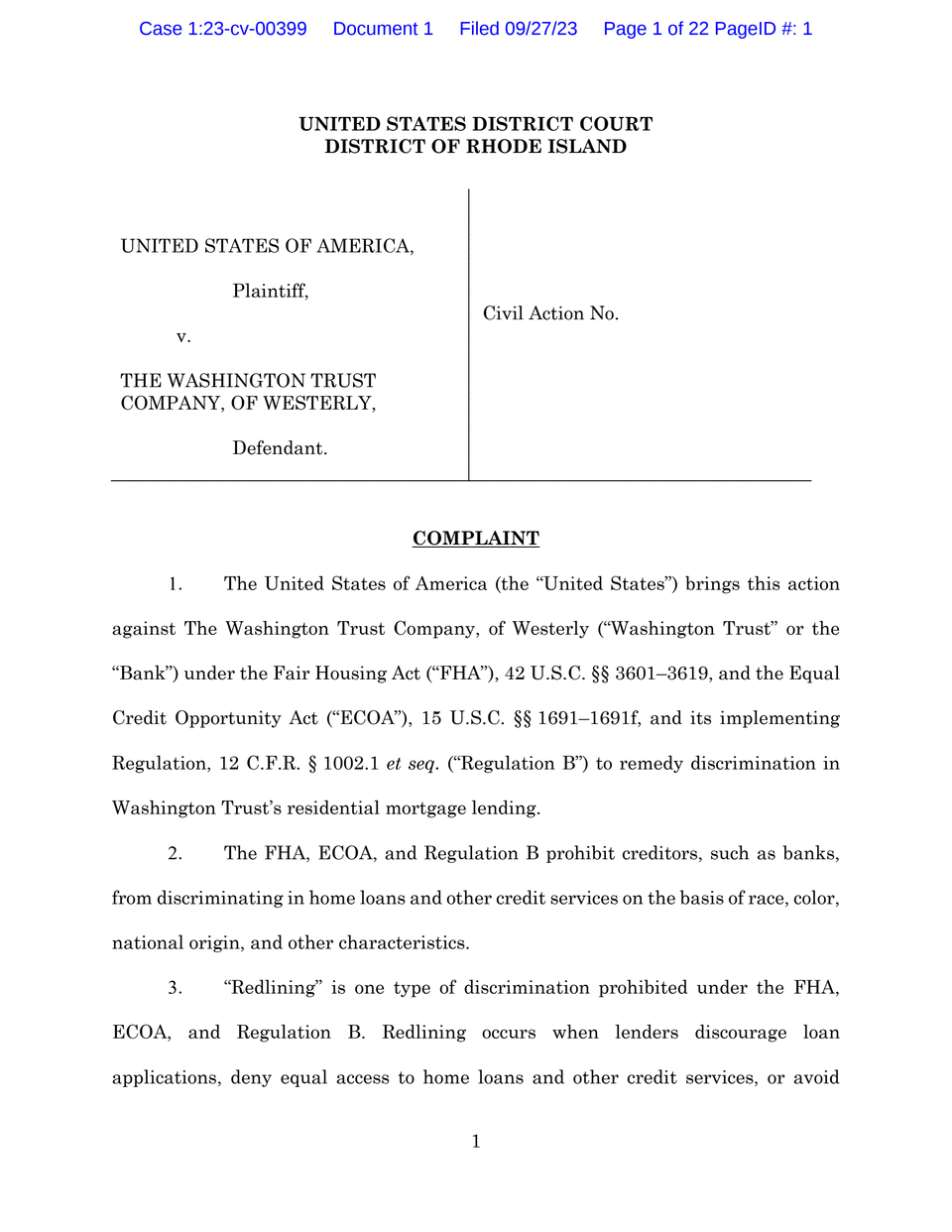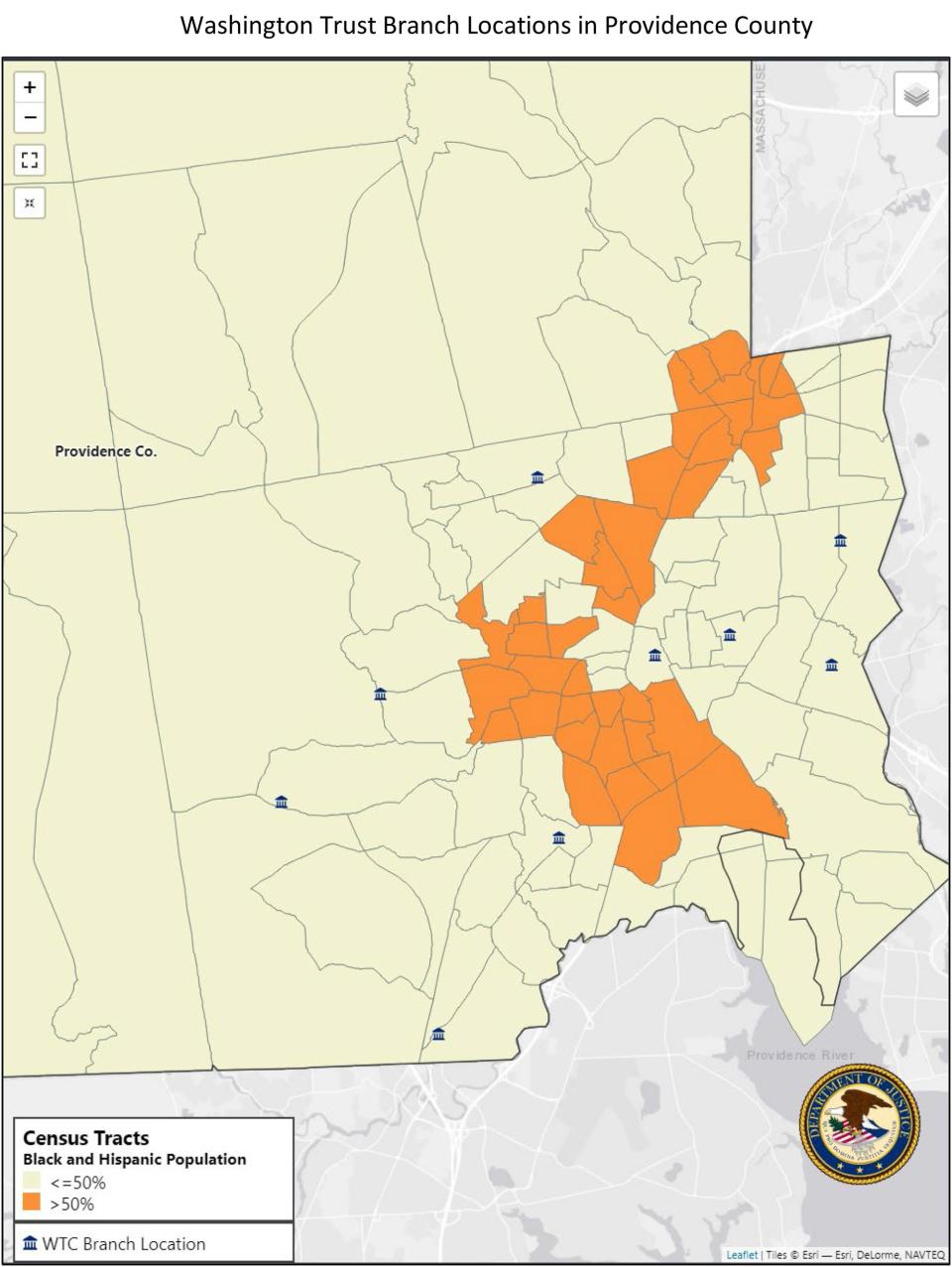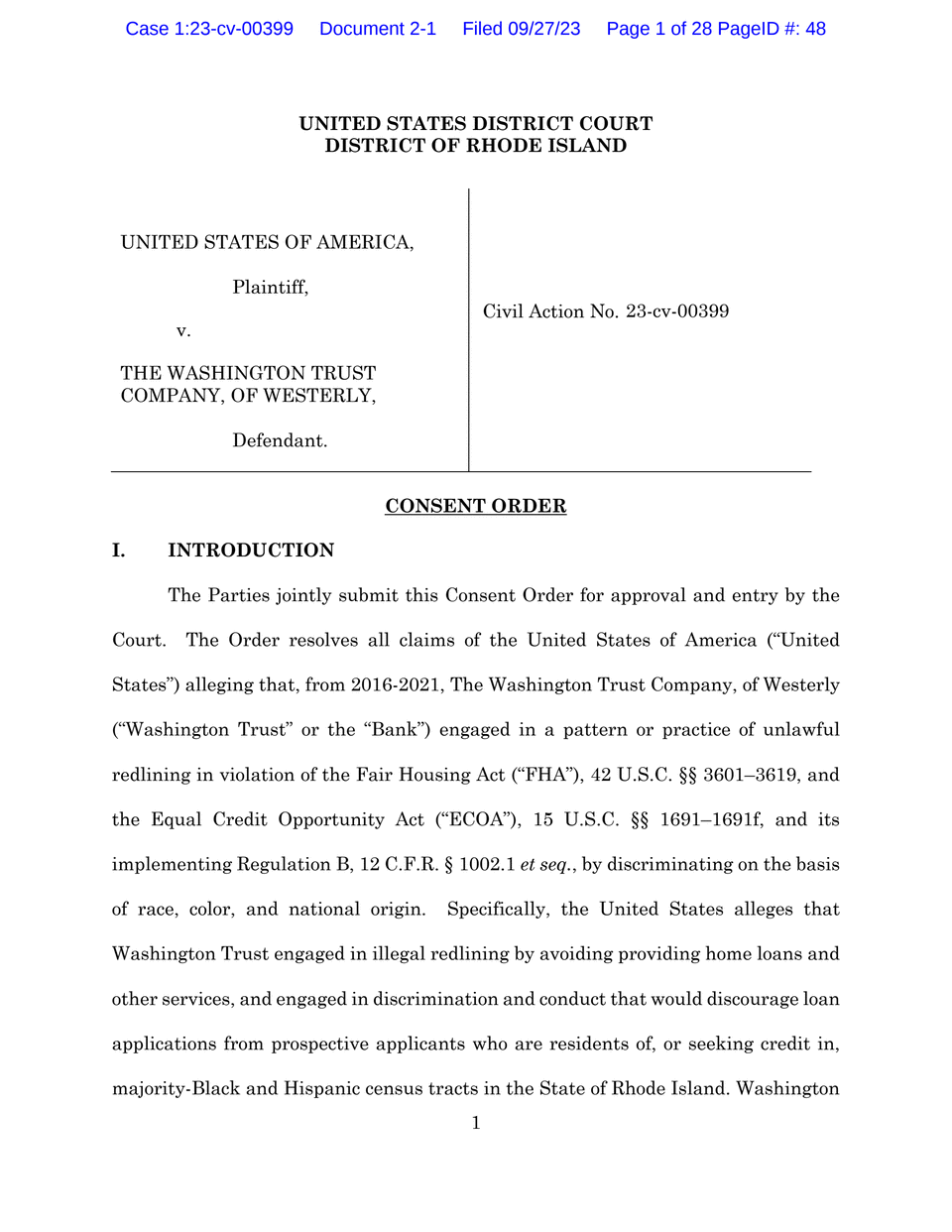Washington Trust enters agreement over redlining allegations. Here's what it will do.
PROVIDENCE − A federal district judge has approved a consent decree between one of Rhode Island's biggest banks, Washington Trust, and the federal government after the government brought allegations of racial discrimination.
Judge Mary McElroy approved the consent decree between Washington Trust, the Rhode Island U.S. Attorney's Office and the Department of Justice in a virtual hearing on Tuesday.
What will Washington Trust have to do?
The decree, which will remain in effect for at least five years, requires Washington Trust to spend $9 million, including $7 million to help would-be buyers, $1 million for groups that conduct financial literacy training in majority Black and Hispanic Census tracts and $1 million in advertising, outreach, consumer education and credit initiatives.
The bank must also open two branches in majority Black/Hispanic census tracts, including a planned branch in Olneyville, assign two full-time mortgage loan officers to work in majority Black/Hispanic census tracts, and translate much of its website into Spanish.
The bank will also pay for a "Community Credit Needs Assessment" and then share the results with both the government and its workers in charge of compliance with the consent decree. The study is intended to show the community's lending needs.
Read more about the allegations: Washington Trust settles over accusations it discriminated against Black, Hispanic borrowers
Why did the federal government accuse Washington Trust of racial discrimination?
The Rhode Island U.S. Attorney's Office alleged in its complaint filed against the bank on Sept. 27 that leaders knew about potential racial discrimination as early as 2011. Problems started in 2016 when the bank designated the entire state of Rhode Island as its coverage area. The bank was accused of engaging in racial discrimination between 2016 and 2021.
The bank allegedly avoided lending to people from majority Black and Hispanic communities by not opening branches where they live, having nearly no one who speaks Spanish working as a mortgage officer and not having most of its website translated into Spanish, according to the complaint.
Page 1 of complaint_exhibits_and_consent_order

Contributed to DocumentCloud by Wheeler Cowperthwaite (The Providence Journal) • View document or read text
At a news conference after the case was filed, Rhode Island U.S. Attorney Zachary Cunha said his office looked into lending data from other banks and found that Washington Trust had a much lower rate of lending to minorities and people in Black/Hispanic Census tracts. When the bank did offer loans or other products in those census tracts, where they had no branches, they were much more likely to go to white customers.
In an unsigned written statement, Washington Trust previously wrote that it "vehemently" denies the allegations and agreed to the settlement agreement only to "avoid the expense and distraction of potential litigation."
What does the $7 million get for would-be homebuyers?
The $7 million set aside for homebuyers includes strict rules on how it can be used, including that no more than 25% can be used for home refinancing. The maximum grant each person can get is $25,000 and they must be in a majority Black/Hispanic Census tract.

If every person received the maximum benefit, $25,000, a total of 280 people would benefit. If every person received half the maximum, $12,500, the number of people benefiting rises to 560.
The $7 million can be used to:
Offer a loan at an interest rate below the market rate
Offer down payment assistance as a grant
Offer closing cost assistance as a grant
Provide payment of initial mortgage insurance premiums
Provide "any other assistance measures approved by the United States"
Page 44 of complaint_exhibits_and_consent_order

Contributed to DocumentCloud by Wheeler Cowperthwaite (The Providence Journal) • View document or read text
Washington Trust president made $8.6 million during period of alleged discrimination
Between 2016 and 2021, when the federal government alleged racial discrimination by the bank, the top five executives made a combined $30 million, between salaries, bonuses, stock options and "other" compensation.
Settlement announced: Washington Trust settles over accusations it discriminated against Black, Hispanic borrowers
Washington Trust President Edward Handy, who became the president in 2018 after working as the chief operating officer starting in 2013, made $8.6 million between 2016 and 2021.
Read more about how much Washington Trust executives made.
Thanks to our subscribers, who help make this coverage possible. If you are not a subscriber, please consider supporting quality local journalism with a Providence Journal subscription. Here's our latest offer.
Reach reporter Wheeler Cowperthwaite at wcowperthwaite@providencejournal.com or follow him on Twitter @WheelerReporter.
This article originally appeared on The Providence Journal: Washington Trust Bank must pay $7m to help minority home buyers

